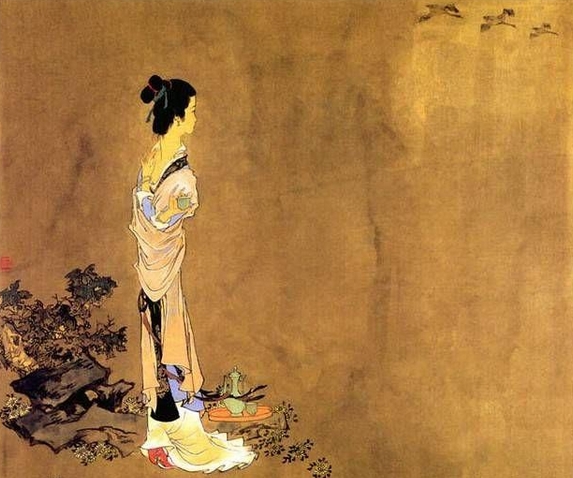Nan Ge Zi – Mourning the Dead
- Poetry of Li Qingzhao
《南歌子·天上星河转》

English Translation
Up in the heavens, the starry river turns;
Down here on earth, curtains, drapes hang low.
The air chilling, my tears dripping, dousing my mat and pillow;
I rise to disrobe my silken o'erclothes, and idly wonder
How old the night has grown.
‘Tis a robe of small lotus-pods, patched on in green,
And a few leaves of the lotus, gilt-threaded, yellowed.
The same seasonal clime of old time, the selfsame old-time robe;
Only my sentiments aren't quite the same, as those I'd known
In our days in time of old.
By Li Qingzhao
中文原文( Chinese )
天上星河转,人间帘幕垂。
凉生枕簟泪痕滋。
起解罗衣聊问、夜何其。
翠贴莲蓬小,金销藕叶稀。
旧时天气旧时衣。
只有情怀不似、旧家时。
Next:Cold incense burner
- Why Chinese poems is so special?
- The most distinctive features of Chinese poetry are: concision- many poems are only four lines, and few are much longer than eight; ambiguity- number, tense and parts of speech are often undetermined, creating particularly rich interpretative possibilities; and structure- most poems follow quite strict formal patterns which have beauty in themselves as well as highlighting meaningful contrasts.
- How to read a Chinese poem?
- Like an English poem, but more so. Everything is there for a reason, so try to find that reason. Think about all the possible connotations, and be aware of the different possibilities of number and tense. Look for contrasts: within lines, between the lines of each couplet and between successive couplets. Above all, don't worry about what the poet meant- find your meaning.